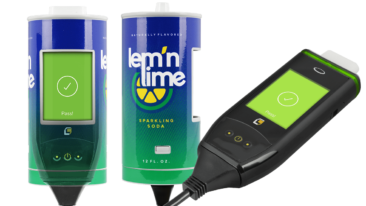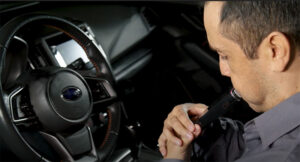Lowest Cost Ignition Interlock
LOWER 2025 PRICING – BI-WEEKLY PAYMENTS – FREE SHIPPING*

Get the Can FREE!*
Reserva una Instalación
Call (844) 387-0326 – No Wait Times
Exclusive CADTP Partner!
*RESTRICTIONS APPLY. INTERLOCK CAN IS FREE WITH PURCHASE OF OPTIONAL PROTECTION PLAN. FREE SHIPPING APPLIES TO STANDARD RATE SHIPPING. ACTIVATION FEE STILL APPLIES.
Ignition Interlock Device Laws in Pennsylvania
Low Cost Interlock is an approved PA ignition interlock installer. We have dozens of ignition interlock device installation locations throughout Pennsylvania, ensuring that finding the right equipment and service is easy no matter where you are in the state. Our goal is to help you through every step of the process, from beginning to end. Our 24/7 bilingual customer service representatives can answer all of your questions about installing an ignition interlock in PA.
Pennsylvania Ignition Interlock Device Guidelines
In 2017, Pennsylvania enacted a new law (ACT 33 of 2016) to require the installation of Ignition Interlock system for most 1st offense and all subsequent DUI (driving under the influence) offenses. The individual convicted of a DUI offense who is required to install an Ignition Interlock Device must do so for a period of 1 year. After that period has passed, you may be eligible for an unrestricted driver’s license.
There are two types of Ignition Interlock Licenses available in Pennsylvania (Ignition Interlock Limited License) IILL or the (Ignition Interlock Restricted License) IIRL.
The Ignition Interlock Limited License allows an individual to drive during their suspension term. In order to be eligible to receive an IILL, the individual must own or have a vehicle available to them to install an Ignition Interlock Device. You must then petition PennDOT for this license via PennDOT form DL-9108SC.
For more information on IILL please refer to PennDOT’s IILL Fact Sheet.
The Ignition Interlock Restricted License is required for all individuals who have served their period of license suspension resulting from a DUI conviction. The IIRL must be obtained through PennDOT and held for a period of one year. Only after holding this license for a period of one year, the individual will receive their unrestricted driver’s license back. The individual must obtain their IIRL even if they do not own or have available to them a vehicle for an IID to be installed in.
To learn more, go to the PennDOT’s Ignition Interlock Fact Sheet or PA DUI Guide.
General Information
.08 DUI Legislation
Act 24, which lowered Pennsylvania’s legal limit of alcohol from .10 to .08, was signed into law on September 30, 2003. The new Driving Under the Influence (DUI) Law creates a tiered approach toward DUI enforcement and treatment, and includes many changes to the penalties, terms of suspension, fines and other requirements. The combination of an individual’s Blood Alcohol Content (BAC) level, and prior offenses, determines the licensing requirements and penalties. The new law focuses on treatment for first-time DUI offenders, rather than strictly punishment and suspension.
There are now three levels of DUI:
Under the new DUI law minors, commercial drivers, school vehicle or bus drivers, and offenders involved in an accident that injures someone or causes property damage may be subject to the high BAC penalties even if their BAC is not in the high category. Offenders who refuse breath or chemical testing may be subject to the highest BAC penalties. The following charts show the penalties for each of the BAC categories:
General Impairment penalties (Undetermined BAC, .08 to .099% BAC)
No prior DUI offenses
- ungraded misdemeanor
- up to 6 months probation
- $300 fine
- alcohol highway safety school
- treatment when ordered
1 prior DUI offense
- ungraded misdemeanor
- 12 month license suspension
- 5 days to 6 months jail time
- $300 to $2,500 fine
- alcohol highway safety school
- treatment when ordered
- 1 year ignition interlock
2 or more prior DUI offenses
- 2nd degree misdemeanor
- 12 month license suspension
- 10 days to 2 years prison
- $500 to $5,000 fine
- treatment when ordered
- 1 year ignition interlock
The new law creates a higher set of penalties for those having higher BAC levels. It allows for treament at all levels, and requires alcohol highway safety school for all first and second time offenders.
High BAC penalties (.10 to .159% BAC)
No prior DUI offenses
- ungraded misdemeanor
- 12 month license suspension
- 48 hours to 6 months prison
- $500 to $5,000 fine
- alcohol highway safety school
- treatment when ordered
1 prior DUI offense
- ungraded misdemeanor
- 12 month suspension
- 30 days to 6 months prison
- $750 to $5,000 fine
- alcohol highway safety school
- treatment when ordered
- 1 year ignition interlock
2 or more prior DUI offenses
- 1st degree misdemeanor
- 18 month license suspension
- 90 days to 5 years prison
- $1,500 to $10,000 fine
- treatment when ordered
- 1 year ignition interlock
3 or more prior DUI offenses
- 1st degree misdemeanor
- 18 month license suspension
- 1 to 5 years prison
- $1,500 to $10,000 fine
- treatment when ordered
- 1 year ignition interlock
The following outlines specific components of the new law, and changes from the previous law that impacts DUI drivers.
Blood Alcohol Content (BAC) Levels
The Blood Alcohol Content (BAC) level for per se* DUI is lowered to .08%.
-Effective September 30, 2003
Penalties for DUI will be based on BAC and prior offenses.
-Effective February 1, 2004
Accelerated Rehabilitative Disposition (ARD)
Requires courts to impose suspensions for BAC ARDs based on the following BAC ranges:
- Less than .10% – no suspension,
- .10% to less than .16 – 30 day suspension, or
- .16% and above – 60 day suspension
-Effective February 1, 2004
License Suspensions
Suspensions will be imposed as follows:
- BAC below .10% and incapable of safe driving: No suspension for first offense if the driver meets certain criteria; 12 month license suspension for second or subsequent offense.
- BAC greater than or equal to .10% and less than .16%: 12 month license suspension for first and second offense. 18 month suspension for third or subsequent offense.
- BAC greater than or equal to .16%: 12 month license suspension for first offense. 18 month suspension for second or subsequent offense.
- Out-of-state DUI convictions: No suspension for first offense; 12 month license suspension for second or subsequent offense.
-Effective February 1, 2004
DUI Treatment and Evaluation
Treatment and evaluation processes are geared to rehabilitation.
-Effective – Phased-In Through 2009
Ignition Interlock
Drivers who receive a second or subsequent DUI violation on or after September 30, 2003, can no longer serve an additional one year suspension in lieu of obtaining an ignition interlock device. Drivers are required to install ignition interlock on all vehicles owned (including leased) before driving privileges can be restored.
-Effective September 30, 2003
Additionally, the following exemptions and penalties have been added:
- Financial Hardship Exemption:Drivers may apply for an exemption from the requirement to install the ignition interlock device on all of their vehicles. If the exemption is granted, ignition interlock installation will only be required on one vehicle.
-Effective February 1, 2004 - Employment Exemption:Under certain circumstances, ignition interlock restricted drivers may operate employer owned vehicles but only in the course and scope of employment. The employee must notify the employer of the ignition interlock restriction and carry proof of employer notification on a PennDOT form. The employer owned vehicle cannot be a school bus/vehicle or large passenger vehicle.
-Effective February 1, 2004 - Ignition Interlock Violations:Individuals convicted of driving without or tampering with the ignition interlock device will have their ignition interlock period extended 12 month from the date of conviction for the first offense and will have their driving privileges suspended for 12 months for the second or subsequent offenses. Upon restoration they must comply with ignition interlock for 12 months. Individuals, whose driving privileges are suspended during the ignition interlock period for a non-ignition interlock violation, must complete the ignition interlock period upon restoration.
-Effective February 1, 2004
Occupational Limited Licenses (OLL’s)
First time DUI offenders may be eligible for an OLL after serving 60 days of their suspension. Individuals whose licenses are suspended for 18 months (for DUI or refusing breath or chemical testing) and have no more than one prior offense may be eligible for an OLL with an ignition interlock after serving 12 months of their suspension. In addition, first time underage drinking violators may be eligible for an OLL.
-Effective February 1, 2004
Expungement of Accelerated Rehabilitation Disposition (ARD) Records
PennDOT will automatically expunge ARD records after 10 years providing a person’s operating privileges were not revoked as a habitual offender and/or the person was not a commercial driver at the time of the violation.
-Effective February 1, 2004
Credit (Suspension)
Individuals suspended for driving a vehicle not equipped with an ignition interlock device or driving under a DUI-related suspension, with a BAC of .02% or greater cannot receive credit for their suspension until jail time has been served.
-Effective February 1, 2004
Implied Consent/Breath or Chemical Testing
Suspensions for individuals who refuse to submit to breath or chemical testing may be increased. Breath or chemical testing may now be required for individuals who are arrested for driving under a DUI-related suspension or driving without an ignition interlock device.
-Effective February 1, 2004
* “Per se” is a Latin phrase that means “by itself.” Evidence that a person drove, operated or was in control of a motor vehicle with a BAC of .08% or higher is enough by itself to convict the person of DUI. A person with BAC less than .08% might still be convicted of DUI is there is evidence that he or she imbibed enough alcohol to make him or her incapable of safely driving, operating or being in control of a motor vehicle.

